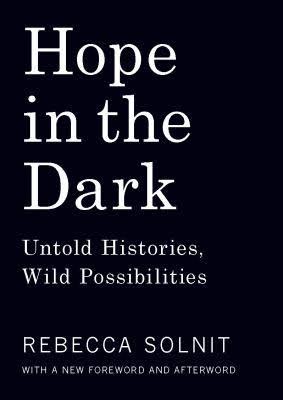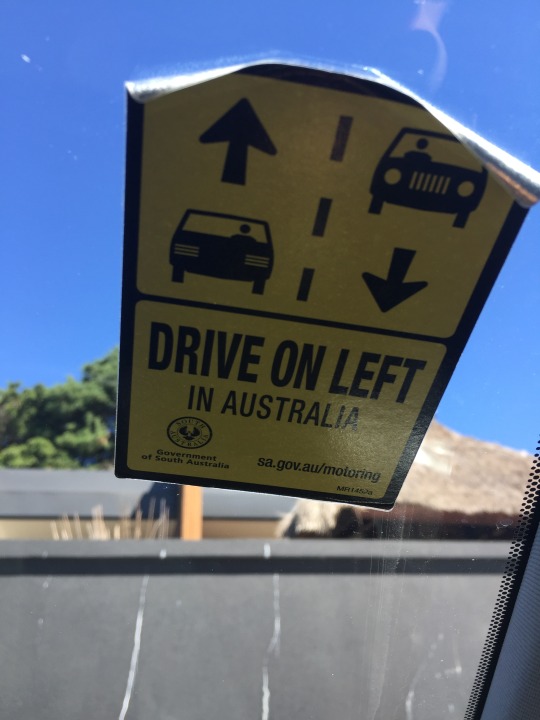#other species of leftist do not seem to have this problem to anything like this degree
Explore tagged Tumblr posts
Text
12:02 behold the world world the most heavily policed and militarized borders in the world and inside of them 12:08 only 14 of the population but 73 of the wealth this isn't a perfect map it 12:14 doesn't show for instance the varied relationships between the countries outside those Borders or how they have different relationships to the countries 12:19 within them it also paints this as pretty black and white countries are either in or out and that's unhelpful 12:25 because of the ways that the boundaries and flows of imperialism can shift and change and also because it can't tell us
okay so you admit this map isn't actually that analytically useful and you gloss over why some countries are included in it and some aren't. you just lump all this together as the "imperial core" (nevermind i think that is a lousy account of why those countries behave the way they do, and better ones exist)
as David Graber put it in direct action and ethnography a 12:48 lot of us were already arguing that the whole point of free trade was in fact to confine most of the world's population 12:55 in impoverished Global ghettos with heavily militarized borders 13:01 in which existing social protections could be removed and the resulting Terror and Desperation fully exploited
ascribing this degree of agency to an ad-hoc system of incentives is really dumb; it obscures far more than it illuminates, IMO, and you will badly misunderstand why decisions are made in the way that they are if you cannot understand what shapes those inventives
there's point in here also about industrialized countries getting rich through colonialism that i think is correct but is buried under a pile of annoying jargon and phrases like "chattel slavery" that are employed, not to disambiguate in the discussion of different kinds of forced labor, but just as, like, weirdly contentless identifiers. i hate that rhetorical tic so much. you can just say "slavery"! everyone watching this agrees slavery is bad!
and all this is followed by an explication of the place of oil in the world economy focused entirely on america, the only country with agency; the author rightly points out that electing the most green president in the world tomorrow wouldn't change much (maybe anything), and attributes this to the clunkiness of imperial power structures that are that way for purely abstract reasons instead of, you know, the fact that a US president isn't the dictator of Earth and shouldn't be, and that the metaphor of a unitary "empire" is a really useless one when trying to describe how individual political platforms of US presidents do or don't translate into, like, green energy policy in Germany!
the diversion into kafka is entertaining, but not really relevant--the structure of international politics is very different on a day-to-day level than that of the Austro-Hungarian Empire.
like come on. global warming sucks. capitalism sucks! but i don't think you can usefully understand--nevermind tackle--the problems the world faces if you box up every constituent element of your worldview into these little jargon-kissed pieces that admit no closer inspection.
what is it about communists that makes them just uniquely incapable of describing the actual world they live in
#and i really am specifically hating on communists here#other species of leftist do not seem to have this problem to anything like this degree#but you ask a communist to talk about any subject#and you get this logorrhea of jargon that doesn't mean *anything*#it's just the same dozen buzzwords repeated in different order
53 notes
·
View notes
Photo

F. Scott Fitzgerald famously said,
“The test of a first-rate intelligence is the ability to hold two opposed ideas in the mind at the same time, and still retain the ability to function,”
but the summations of the state of the world often assume that it must be all one way or the other, and since it is not all good it must all suck royally. Fitzgerald’s forgotten next sentence is,
“One should, for example, be able to see that things are hopeless and yet be determined to make them otherwise.”
--
Hope is not prognostication. It is an orientation of the spirit, an orientation of the heart; it transcends the world that is immediately experienced, and is anchored somewhere beyond its horizons.
Hope, in this deep and powerful sense, is not the same as joy that things are going well, or willingness to invest in enterprises that are obviously headed for early success, but, rather, an ability to work for something because it is good, not just because it stands a chance to succeed.
--
The despair that keeps coming up is a loss of belief that the struggle is worthwhile.
That loss comes from many quarters: from exhaustion, from a sadness born out of empathy, but also from expectations and analyses that are themselves problems.
--
This book tells stories of victories and possibilities because the defeats and disasters are more than adequately documented;
--
Inside the word emergency is emerge;
--
Sometimes the commitment to the gloomy version becomes comical.
From the 1960s onward, people worried about “the population bomb,” the Malthusian theory that global population would increase without any check short of resource and health disasters. Sometime in the 1990s, it became clear that birthrates in many parts of the world were decreasing, that globally population would peak—in about 2025, according to current estimates—then decline. Nations of the industrialized world, where resource consumption is highest, including Japan, Canada, Australia, Europe, and Russia, are already on the downswing.
Rather than celebrate that an old problem had gone away of itself (or of changed social circumstances, including the spread of women’s reproductive rights), declining population is often framed as a new impending crisis. The situation had changed completely, but the song remained the same.
--
The only story many leftists know how to tell is the story that is the underside of the dominant culture’s story, more often than the stuff that never makes it into the news, and all news has a bias in favor of suddenness, violence, and disaster that overlooks groundswells, sea changes, and alternatives, the forms in which popular power most often manifests itself.
--
Their gloomy premise is that the powers that be are not telling you the whole truth, but the truth they tell is also incomplete. They conceive of the truth as pure bad news, appoint themselves the deliverers of it, and keep telling it over and over. Eventually, they come to look for the downside in any emerging story, even in apparent victories—and in each other: something about this task seems to give some of them the souls of meter maids and dogcatchers.
--
Joy doesn’t betray but sustains activism. And when you face a politics that aspires to make you fearful, alienated, and isolated, joy is a fine initial act of insurrection.
--
In 1785, no one in Britain was thinking about slavery, except slaves, ex-slaves, and a few Quakers and soft-hearted evangelicals. In his 2005 book Bury the Chains, Adam Hochschild tells the story of how the dozen or so original activists gathered at a London printer’s shop at 2 George Yard, near what is now the Bank tube stop. From that point onward this handful of hopefuls created a movement that in half a century abolished slavery in the British Empire and helped spark the abolition movement that ended slavery in the United States a quarter century or so later.
--
It has taken less than forty years for homosexuality to go from being classified as a crime and a mental disorder to being widely accepted as part of the variety of ordinary, everyday life.
--
You could say that the figures onstage are the actors—or puppets, since much of the script is written elsewhere, out of sight, by corporations and elites, but also by popular movements that tug the conscience and change the status quo, and it is in these neglected places that radical power lies. There and in the circuitous routes to the center, where these new ideas cease to be new as they become the script for the actors onstage, who believe they wrote them. (Stalin reputedly once said, “Ideas are far more dangerous than guns. We don’t allow our enemies to have guns, why should we allow them to have ideas?”)
--
... advocates, suffragists, abolitionists were being persecuted. To admit that these people pose a threat to the status quo is to admit first that there is a status quo, secondly that it may be an unjust and unjustifiable thing, and thirdly that it can indeed be changed by passionate people and nonviolent means.
--
What lies ahead seems unlikely; when it becomes the past, it seems inevitable.
--
I was born the summer the Berlin Wall went up, into a world shadowed by the Cold War between the United States and the USSR. Many people then expected a nuclear war was imminent and that such a war could mean the end of the world. People have always been good at imagining the end of the world, which is much easier to picture than the strange sidelong paths of change in a world without end.
--
This is the way the world changes, as Dickens understood when he opened his most political novel with “It was the best of times, it was the worst of times.” It usually is.
--
History is like weather, not like checkers.
(And you, if you’re lucky and seize the day, are like that butterfly.) Like weather in its complexity, in its shifts, in the way something triggers its opposite, just as a heat wave sucks the fog off the ocean and makes my town gray and clammy after a few days of baking, weather in its moods, in its slowness, in its suddenness.
A game of checkers ends. The weather never does.
That’s why you can’t save anything. Saving is the wrong word, one invoked over and over again, for almost every cause. Jesus saves and so do banks: they set things aside from the flux of earthly change. We never did save the whales, though we might have prevented them from becoming extinct. We will have to continue to prevent that as long as they continue not to be extinct, unless we become extinct first. That might indeed save the whales, until the sun supernovas or the species evolves into something other than whales.
--
There’s a wonderful parable by Jorge Luis Borges. In the last years of the thirteenth century, God tells a leopard in a cage, “You live and will die in this prison so that a man I know of may see you a certain number of times and not forget you and place your figure and symbol in a poem which has its precise place in the scheme of the universe. You suffer captivity, but you will have given a word to the poem.” The poem is the Divine Comedy; the man who sees the leopard is Dante.
--
Perfection is a stick with which to beat the possible.
--
Profound change for the better does occur, even though it can be difficult to see because one of the most common effects of success is to be taken for granted. What looks perfectly ordinary after the fact would often have seemed like a miracle before it.
0 notes
Text
On turning left into darkness
In the past week, many associates of mine on the radical left have expressed grave concern about my recent cultural politics. If you haven’t been following, here’s my best shot at a succinct, impartial recap. I have been blogging about what it means to engage intellectually with smart people on the right. By “smart people on the right,” I mean people with non-trivial intellectual projects defending right-wing perspectives, potentially even including some that appear horrifying and/or evil. I use the word “smart” only to exclude from the mind two images that have come to define “conservatism” in the left-wing imagination: infantile and fundamentally disingenuous politicians, and then mindless, racist armies of trolls. Specifically, for instance, I have expressed interest in the writings of Nick Land and Curtis Yarvin (Moldbug); I recently hosted a podcast with psychologist Diana Fleischman that included discussion of controversial topics such as “human biodiversity” (some say this is a euphemism for racism and some say it’s an empirical reality). Obviously not the usual talking points for a left-wing intellectual, but to be clear nobody is accusing me of writing or saying anything particularly impeachable. I did receive some very thoughtful concerns, however, so one goal of this post is to clarify at least one or two of the most fair and important criticisms I have received. This is a caring thing to do, and I still believe deeply in caring.
On the other hand, any culture of absolute kindness becomes a conservative system of unspoken violence insofar as painful truths get repressed and all participants become deformed over time. It is because I genuinely love my friends on the left that I am stepping up to publicly state, and seriously pursue the implications of, dozens of difficult questions we have basically had an unspoken pact to not speak about for perhaps decades now.
If you are one of my comrades on the left who is generally overexposed to human docility or illness, I must also warn you, caringly, that you might be alarmed or confused by what follows. Many of you are now accustomed to a particular script: comrade is “problematic,” group pulls moral alarm, comrade begs forgiveness and (even in the best of cases, not to mention the horror shows), comrade dies a little on the inside, group feels reassured comrade will do no harm, group grows old and gray wondering why they never changed the world. Well, I have seen this script performed too many times to play along any longer; over the past several years I think I have learned a thing or two about why our groups don’t change the world. One reason is that we punish our own for grappling with questions we pretend to understand but are in fact to fearful to seriously consider.
So at the same time this post will charitably respond to some left-wing critiques of my project, in the same breath I am going to unapolagetically push further outward on my perspective that so horrifies many of you. I will no longer fight rearguard battles against fearful and disingenuous people on the left who would rather condemn something than admit they don’t have the time to read and process it; but neither am I here to cozy up with right-wing currents, as so many on the left assume of anyone who starts really speaking up and speaking out. I should like to become a worthy opponent of the smart wings of the new reaction, rather than merely pretend they are stupid; for I consider it a great embarrassment that the revolutionary left has yet to generate anything as genuinely interesting and creative as The Dark Enlightenment or Unqualified Reservations. If so-called left-acclerationism is our best response, then we’re in deep trouble (see below). Fortunately, I think we can do much, much better, but we won’t know until we try.
One of the key objections put forward by my more thoughtful critics from the left is the following. They argue that it is ethically and/or politically wrong to entertain a frame of debate in which racist implications appear likely. For example, my podcast with Diana is ethically or politically bad because by even discussing biological differences across groups, I am effectively increasing the perceived legitimacy of notions that can and will be used to support racist ideas or policies. I think this is a reasonable concern based on a plausible model of culture. Yet after reflecting on this for several years, I believe this idea is fatally mistaken in ways that have not yet been fully grasped or written down anywhere (that I know of, anyway). Here is a first, short attempt.
This idea that it is ethically or politically wrong to entertain a certain frame of debate is a fatal error in both the normative and empirical sense of that term. First, on the normative level, the idea of refusing to engage people with certain frames of reference dehumanizes people who have no access to anything other than those frames of reference. In short, this objection writes off large swaths of humanity as inhuman. I believe that this monopoly on humanity claimed by educated leftists is now, on net, a more violent and reactionary phenomenon than any legitimacy that would be given to racism by even talking with a proper racist (let alone decent people who merely have dicey or controversial positions). What many on the left ignore is that today large swaths of human beings are, through no fault of their own, socialized into right-wing and often racist frames. There exists a large number of people who are racist because they were sociologically doomed from birth to be racist (e.g. poor undeducated white kids in racist families and geographies are statistically doomed to be racist). Their humanity has been robbed from them (as it’s increasingly robbed from everyone).
It is my view that the revolutionary left is absolutely obligated to treat such people as the humans they truly are despite the dehumanization they have been subjected to. When the “humane” leftist says thou shall not engage with any racist “framing” of a conversation, they are saying that large swaths of essentially innocent people do not have the right to think, speak, or participate in public life, i.e. this position coldly writes off the past and continued dehumanization of literally millions of people. Leftists think they are being radically humane, guarding the last line of defense against the collapse of human equality, but the horrifying mistake nobody is willing to reflect on is that this is actually saying “keep those filthy animals out of the little circle of humanity I still get to enjoy with my educated friends.”
The genuinely humane, revolutionary-emancipatory position in contemporary culture is that we must dare to do the cognitively and emotionally terrifying, and dangerous, work of extending whatever last shreds of humanity we have, to everyone we possibly can. Therefore, the truly humane, caring, revolutionary gambit today ethically requires us to “engage with racist frames.” As a militant antifascist, I also believe in drawing lines across which absolute refusal or physical resistance becomes the correct move: to me, the clear line is if someone is actively engaged in violence or directly inciting it. I would not have a conversation with a neo-Nazi marching in my town throwing bottles at immigrants; I would, with my community, physically remove them from my town. All I am saying is that to draw this line of militant non-engagement at the level of “thinking and speaking with a racist frame” would require us to tell millions of people to go die in the cesspool they were born into. We have been effectively doing that for decades now, and not only does it fail, but it appears to engender or intensify novel mutations of racist politics (e.g., carefully non-explicit white “identitarian” movements, etc).
Continuing from the previous part, the second problem is as follows. This notion that it can be wrong, a priori, to consider certain frames of reference is a grave error in the practical or strategic sense as well, because to cast off so many people as inhuman casts off all of the humans we would need to change anything. It empirically dooms the left to never achieve the fundamental transformations we claim to be fighting for. If you listen to smart people on the right, they are currently laughing their way to the end of humanity as the left continues to push deeper and deeper into the mistakes we are actively refusing to learn from. It is very difficult for the few revolutionary leftists still alive to confront this, because it’s genuinly so vertiginous and horrifying that it really approaches what is cognitively and emotionally unsurvivable for genuinely caring people: there are at least some objective reasons to believe the human species may be genuinely crossing the threshold at which exponentially increasing technological efficiency makes the absolute end of humanity an objective and irreversible empirical reality. I think it’s debatable where we are at in that process, but it seems undeniable this question is now genuinely at stake and I simply don’t see a single person on the revolutionary left seriously considering this with the radical honesty it requires.
If folks like Srnicek and Williams and the “post-capitalism” types are the best the radical left has to offer on this front, I’m very sorry but we’re in serious trouble. No disrespect to those folks, they are all very good and smart people. But that is exactly the problem. A really profound problem nobody on the left wants to consider is that being a “good person” imposes psychological constraints on your most basic capacities to think and express yourself honestly. To understand this, we need to take a little historical detour.
Recall that capitalist society only emerged and grew on hypocrisy as the standard mode for cognitively and emotionally managing the necessity of having to brutally exploit each other to survive. This hypocrisy is what the word “bourgeois” means, and it is nothing less than the naturalized lifestyle of everyone who qualifies as a “good person” in modernity. Because living as a human being under capitalism requires hypocrisy, being empirically correct about what is happening and how the world functions (science) as well as interpersonally adequate to each other (what is called “caring,” or saying/doing what helps specific other people in specific moments) are mutually exclusive to a substantial degree. The psychologist Jonathan Haidt has shown with several years of research that people who identify with the political left are disproportionately interested in “care” as a value; conservatives have a more multi-dimensional “palette” of moral foundations). To be clear, I am in fact deeply interested in the value of care, which is one reason I find myself sociologically on the left-wing of political culture. The unique challenge I don’t see anybody on the radical left seriously confronting is how our committment to care comes with the cost of certain systematic errors we happily ignore by dishonestly repeating over and over that we ignore them because we “care.” The issue here is that, it is programmed into the nature of a capitalist bourgeois society that to pursue unlimited “care” means that you objectively do not care about changing reality. This is because changing something as complex as “society” requires an extremely sophisticated empirical rigor deeply at odds with the care we also need to exercise in order to cooperatively change things together as diverse human beings. How to achieve the optimal balance of these genuinely contradictory tendencies is, in my view, one of the million-dollar questions for any serious revolutionary political thought today.
(An aside. The first and most stupendous person to see all of this in the early stages of capitalist modernity, who so clearly saw the doomed destiny of any society organized on hypocrisy, that he preferred to sacrifice his public “goodness” to produce monuments of honesty so outrageous he hoped they would raze the hypocritical order altogether, was, of course, Rousseau. Now, Rousseau did not squash the rise of bourgeois hypocrisy, but he had demonstrable effects in generating the modern revolutionary left tradition as we know it, from the French Revolution to Fanon and beyond. There are many good critiques of Rousseau, but if there is one example of how a sincere individual can craft a life that contributes to genuinely collective, world-historical waves of revolutionary political change, it is surely Rousseau. If this aside does not help you to see the world-historical difference between my own perspective and the neo-reaction, then it is unlikely any other citations ever will.)
In my view, this tradeoff between being correct about how the world works and caring for each other enough that we can cooperatively change it in the direction of peace and abundance for all—this is perhaps the most vexing and urgent puzzle for a genuine revolutionary left today. Yet remarkably I am not aware of a single person genuinely risking themselves on solving it, so I’m going to try. At present I am working on understanding the mechanisms whereby such an important problem has somehow been so stubbornly invisible to so many of us for so long. My wager is that we if we can truly understand the mechanisms of our own blindness, we will find pathways to the holy grail of the revolutionary left tradition: the flourishing of all human beings in peace and abundance, immediately, without recourse to all of the right-wing solutions that get raised in direct response to the left’s willful neglect of exactly this impasse.
It is because of this tradeoff between being correct and caring that I have recently become interested in what I have been referring to as the “smart” right-wing. Many people are concerned that my recent interest in intelligence means that I’ve become an IQ elitist or something. On the contrary, I am keenly suspicious of the politics of high-IQ subcultures, precisely because I know there is a trade-off between being correct and caring. Because we care about each other, there are certain things we refuse to see or else refuse to tell each other about what is really true. That’s fine, and perhaps a hard constraint of the types of beings we are on the radical left. But “smart” far-right people, who do not give a fuck about how people feel, they might just be the only ones capable of telling us those truths we need to process if we are ever going to have a sufficent command on reality to generate the systemic transformations we believe in. But at the same time, I am highly skeptical that the evacuation of care is a viable political project, because warmth is a condition of life for we creatures who require the sun to live, we creatures who are literally composed of a once-exploded star. I think right-accelerationists are wagering on the possibility that, if technologically super-charged hypercapitalism is understood correctly (hence the call to minimize care), that is objectively the most likely path for the possibility of surviving, perhaps into the becoming of something post-human.
For instance, a remarkable feature of Nick Land’s current writing is his obsession with coldness; I have never read anyone who so conscientiously endorses the absolute evacuation of care as a political project. Many on the left find this so evil they are resolutely insisting that if one so much as speaks his name with even one non-negative adjective in the same sentence, that very act is enough to force the speaker out of the publicly defined circle of “good humans” into that outside zone of cast-off inhumanity (consider that Land’s handle is @outsideness), via the same intellectual-social process I described above. If we self-servingly cast off human beings as if they are sub-human, we cannot then feign surprise and indignation if they say, “OK then! I’ll go off to become one with the superintelligent eugenically produced cyborg overloads you’ll be enslaved by in a couple of generations and I will laugh my ass off all the way to the singularity!” That’s the vibe I get when I browse Nick Land’s ongoing work, and when I look at the objective reality of runaway global finance and the tech sector, it does not seem implausible that something like this could potentially be underway. Of course I find that horrifying, which is why I am calling absolute bullshit on the people who say that it’s “too evil to engage.” On the contrary, it’s too alarming not to engage.
The more evil you think someone is, the greater should be your concern to ensure there is not the slightest chance they understand something better than you. If they are so evil, and they understand even one tiny thing you don’t, perhaps they are off using that edge in knowledge to engineer you out of existence. This suggests to me that when people say, “intellectual engagement with person X is prohibited,” what they are actually saying is “we are so afraid they might be part of the superintelligent cyborg army coming to enslave us that, even if they are literally preparing to, we do not want to know about it, even if there is a chance that we can still stop them!” And this is where I get off the train to nowhere, for this is where moderate respectable leftism (including most currently existing “radical” variants) converges with the most insiduous and cowardly conservatism. If there is some chance that hyperintelligent cyborgs are preparing to overtake humanity once and for all, because there is some chance that for generations now they have been operating on a model of the world we made it our pact to never consider, then I’m going to take a real look. Not everyone has to be comfortable doing so themselves, but at this point I think that any honest, decent, thinking being on the radical left will at least allow me to try.
I believe that currently, a dirty little secret on the the left is that for some people, the “left” is an agreement to protect each other’s right to look away from the most horrifying and potentially tragic realities of planetary life today, to (implicitly) secure amongst ourselves the last bits of interpersonal warmth available on the planet, agreeing to allow the rest of humanity’s descent into irreversible coldness. It helps to explain why, if you even approach these issues with the slightest indication of analytical coldness, you have to be ejected from the warmth cartel, for ejecting such existential threats is a condition of its survival. But I believe it has always been the vocation of the revolutionary left, properly understood, to risk its own survival on deploying just enough analytical coldness to engineer the unique machine that would take as an input the left’s unique material resource (warmth or energy via care) and produce as an output non-linear, systemic dynamics the ultimate equilibrium state of which would be peace and abundance for all. What that machine looks like is the question, and this is only a formal statement to illustrate the revolutionary left position today as an engineering problem. There are many reasons that have been adduced as to why such a machine cannot exist, and I do not pretend to offer responses to them here. I am only suggesting that any revolutionary left today, worthy of the name, would need to “solve for X,” as it were. The point of the engineering metaphor is not that everybody in the revolutionary movement will need to be an engineer, not at all; the point is only to show that any left-revolutionary project, to succeed, will have to solve this engineering problem.
What does this mean for revolutionary politics, in plain conversational terms? By putting all of our eggs in the basket of care and kindness, the radical left is now suffering from an engineering crisis it does not have enough engineers to even notice. In short, making revolution is a complex practical problem we are not solving because we are now generations deep in a long-term strategy of prohibiting people who are good at high-level problem solving but bad at being polite. Not to mention people who are good at creative and social openness, but bad at obeying rules. Thinkers of the respectable-radical left, people such as Paul Mason or Srnicek and Williams are selling a hope of technological super-abundance, but they are too sweet to tell any of their left comrades that all of the people you would need to actually produce that super-abundance are off building hyper-exploitative super-capitalism in part because they once went to an activist meeting and everyone treated them like fascists. To bring this back to anti-capitalist basics, the reason left post-capitalist thinkers don’t reflect much on such little problems as this one is because selling books is as mutually exclusive with truth-telling, in the short run, as is being a “nice person.” Hence the need for a fundamentally anti-bourgeois revolutionary intellectual culture cold enough to seek all of the darkest truths, but still warm enough not to betray the calling of solidarity. I’m not saying the left should start worshipping cold analytical power; all I’m saying is that if we genuinely believe in the necessity of changing the world, a revolutionary culture would have to be at least minimally hospitable to a minimal number of people who have knowledge of how complex things work and how they break, and people with the traits and inclinations to maneuver among diverse others. Both types of people are effectively prohibited from those who currently define radical progressive politics. Contemporary radical left culture is now so fully doubled-down on the wager of kindness over intelligence and creativity, that I am afraid it is almost vacuum-sealed against learning why it might be on the verge of extinction. I am writing this, and will continue writing to this effect, on the last-ditch possibility there exist other people out there, somewhere, who can see in this something more important than a moral offense.
from Justin Murphy http://ift.tt/2ppFcmI
1 note
·
View note
Text
Leftists
Our mission, as it started out, was to see Caroline and since she lives out in the boonies, I had no choice but to rent a car. No getting around this. To prepare for impending doom, I purchased the best car rental insurance I could find before leaving the states. $40,000 no deductible. Fortunately, the Australian government forces all car rental companies to carry liability insurance, so I’m not responsible for the fact that I don’t know how to drive on the left side of the road and as a result of that lack of experience I might actually kill someone other than me. (It makes me wonder if Lisa had expired due to my lack of left hand driving experience, could I have sued the car rental company for negligent homicide?) Additionally convenient and considerate, since they have a universal healthcare, single payer system (more on that later), everyone is covered for medical, so basically, I’m just responsible for the rental car. The last time I drove on the left side of the road was in Barbados and I took the side view mirror off the car while trying to pass a school bus. Funny thing was the rental car company didn’t seem to care. Notwithstanding that I admitted that I accidentally knocked the side view mirror off the car and its remnants can be found on some road somewhere, the answer I received, No problem, mon. Back to Australia.
I rented a Budget car, picking it up in downtown Adelaide, a city of about one million. The plan is to get the car, drive up to Adelaide Hills, the area above Adelaide, hence called the Adelaide Hills (duh……), and then onto Strathalbyn (don’t try to pronounce it, you’ll hurt your tongue) to get Caroline, and then onto the Sticky Rice Villas in Stirling back in the Adelaide Hills. Budget has our car ready when we arrive at about 11am. Lisa says to the delightful Budget agent, Any advice for driving on the left side of the road when you normally drive on the right? She responds without missing a beat, Be careful? That’s reassuring.
We load our bags in the car and then not quite ready to take on the challenge (when we told Caroline we were renting a car she said, DON’T DO IT!), so I suggest we get some lunch first, putting off the inevitable. The budget manager I believe sensing some trepidation says, How ‘bout I pull the car around in the lot here and having it facing in the right direction? These Aussies are about the nicest people I’ve come across… We go over to Rundle Street, the main hub of Adelaidian activity (this is a lively town) and settle in at a Vietnamese restaurant, where I get the strong feeling that everyone is in a good mood in this country. We have a delicious meal, but now it’s time to face the music.
We get in the car and I notice this on the windshield:

Helpful....
I reach for the seat belt, nothing there. It’s on the other side. Not a good beginning. Start the car (that’s easy), and then pull out (think left, left, left). Of course the GPS is telling us to go right, but there’s a barrier separating the lanes, which I can’t go over, so that’s not happening. We have to go left and we do. GPS reroutes and says make a left turn in 300 meters. Meters? I’m not good with the GPS when that horrible pushy woman in the phone says, Turn left in a quarter of a mile, let alone 300 meters. Guessing 300 meters will come quickly I press down on the turn signal indicating to all other drivers a left turn is coming from our car. Windshield wipers go on. Not good. Directional signals are on the other side. 300 meters later, the woman is saying turn left, turn left, turn left like she is screaming at me (maybe that was Lisa?). I’m turning left and certain everyone is looking at us wondering why in this sunniest of places this idiot is driving with his windshield wipers on. Answer: because this IDIOT doesn’t know how to turn them off!!! Now here’s where I must give a lot of credit to my co-pilot. At home, my co-pilot is not always so calm. In fact, I’d say she’s anything but calm (think air braking on the passenger side, think Do you not see how close you are to that car?, think Do you want ME to drive?). Nope, my co-pilot is like cucumber cool. I’m thinking maybe I should get a car with the steering wheel on the right side when my car lease comes up next year since it seems to have this calming effect. In a most tranquil and unexpected manner, Lisa says, The wipers are on (no doubt wanting to add, dumb shit) because the directional signal is on the other side. Ahhhhh, I see. We are working as a team. All is going pretty well and then the dreaded roundabouts. Who invented these things and what is the point? I think there are about 5 stop signs in all of Australia. Everything else is a roundabout. I guess Australians don’t want to stop, just slow down. So the first roundabout is at a heavy trafficked area and I don’t even know I’m in one. First rule is yield to people in the roundabout. Blew that. Second rule is put your blinker on when you’re about to turn. Windshield wipers go on. Dang! UGH!!! At this point, I had no choice but to follow the traffic and good news it was flowing in the direction we are headed. Ok, I got this. GPS lady directs us to the highway (much easier except I had a hard time thinking that the slow lane was on the left) and in about 20 minutes we are in Stirling, where we are staying. Without exception, every time I had to make a turn, the windshield wipers were employed and I’ve determined that directional signal employment was the hardest thing about driving on the left side, even harder than the roundabouts. We had the car for seven days and surprisingly I only turned into traffic once! (Co-pilot was a little too calm for that one. Said softly, You’re going to get us killed, dear, there’s oncoming traffic. My initial reaction was to flee the car. I actually opened my car door…) The good news was that as time went on I had two full days without mistakenly turning on the windshield wipers only to slip up the last day bringing the car back to Adelaide. Ok,to be completely honest, the two days were in the Outback where directional signals are not needed because there’s NO ONE on the road. Heck, in the Outback, you could drive on either side of the road, in the middle, even in reverse and no one would know.
Small miracle. Actually, each time we reached our destination, I declared it a small miracle. Co-pilot mumbled something under her breath (prayers of thanks I’m guessing). We checked into the Sticky Rice Villas, which are part of the Sticky Rice Cooking School. Our plan is to go pick up Caroline and bring her back to the villa to spend the night. The villa is a Japanese Zen styled apartment. There are three of them and we are in the Yoko villa. My initial reaction: I want a Japanese Zen villa. This place is so serene and since it’s part of a cooking school the kitchen cooking equipment is state of the art. There is wine for us and fresh eggs, Australian bacon, a small round of Camenbert cheese, fruits and more. There are even three bottles of different Asian fish sauces fermented for two years! for us to take home. This is nice.



After about three minutes of oohing and ahhing, it’s time to go pet kangaroos and koalas, see wombats and wallabies, and Tasmanian devils.
We endured 15 minutes of my harrowing driving and arrived at the Cleland Conservancy, dedicated to the preservation of the fauna of South Australia (small miracle, prayers of thanks upon arrival). We pay the entrance fee and the woman running the entrance takes a liking to us. Taken by our sense of humor, no doubt. She’s a hoot and she comps us a couple of bags of feed since we’ve been entertaining, a $6 savings!. Off we go. Sadly, it’s too hot for the koalas to be held so we can only go to a koala talk among the koalas. These koalas are really something else. If there was any species that should be extinct by now, it should be them. Koalas as most people know stay stoned all the time eating eucalyptus tree leaves. Did you also know that roughly 60% of them have chlamydia? Or that most of them have renal disease? How about that they are mostly blind? Or that the reason it’s too hot for them to be held is that they have no way of releasing heat like sweating or panting and our bodies up against theirs creates more stress on them? Probably the only reason they are alive is that WE humans find them adorable, which they are, and we go out of our way to see that the species survive. They are totally useless creatures. They are the homeless of the animal world. They are that hopeless cousin who never fit in but whom the family supports because he is not capable of supporting himself. Pity creatures, but way cuter than that cousin. And get this: If the mothers have twins they’ll abandon one because it’s too hard to take care of two kids. Question to God, WHAT WERE YOU THINKING? And you, Noah, what’s your excuse?

DISGUSTING!

FREELOADING STD CARRYING DRUG ADDICT!
Having lost all respect for the koalas, it was time to focus our attention on the kangaroos with their cute little pouches and responsible behavior. And there they were hundreds of them (well maybe a hundred of them). So well behaved. These were smaller kangaroos, probably the tallest about four or five feet. And so kind. They fed out of our hands and when they had enough, they would turn their cute little kangaroo faces away from the food as if to say, Oh, I couldn’t possibly eat any more. Save the food for the others. They had no problem being petted, unlike those ungrateful hot koalas who could learn a thing or two from the roos.



Wallaby, nice like the kangaroos, not useless like you know what...
We saw the wombats sleeping and if you’ve ever seen the viral video on the Net of the hopelessly adorable baby wombat hanging out and playing with this guy, the adorable part is short lived. They are some nasty looking adults. The Tasmanian devil was a no show hiding from the heat, but that was ok because it was time to get Caroline, who lives and works about 40 minutes from where we were.
Back to the car (left, left, left) and actually had no driving issues. We make it to the winery where Caroline is working, but we are early and she’s not off yet. We decide to go into the little town of Strathalbyn, population 600. In a way it looks a little like a Western town, but then there’s the very English park, which is beautiful.

Strathalbyn Park
We walk around the town and into the park and we notice this sign made in boxwoods: Remember the ANZACS. We had no idea what that was, but I theorized that the Anzacs were a beloved large family that used to live in Strathalbyn who moved away and when they did, the town’s population plummeted and the town mourned their leaving because the kids were very popular. I could be wrong. (I hope no one from Australia or New Zealand is reading this...)

0 notes
Text
From Jace Kai
I think there really needs to be a stronger voice in the centrist and conservative communities from the vegans within them. This idea that vegans are always these far leftist SJW's by default is lunacy. Anyone standing on any side of the drawn lines who can group people who are "triggered" and "offended" by nothing more than words or ideas, or who can compare some chubby birkenstock wearing millennial transgender person bitching about how some evil white man "assumed their gender" with someone who simply says....
"I live my life without needlessly harming and murdering innocent animals and see no valid reason why anyone should"
...needs a brain check.
The problem is that once people identify with a specific political party, they seem to adopt a set of predetermined ideals and guidelines which extend beyond the political realm which they feel are for some reason necessary to be attached to said party. This is horse shit. That right there is the result of weak thinking from weak minds.
The fact is, it is possible to be a non-religious, vegan conservative, just as it is possible to be a religious, meat eating liberal, regardless of how much both typical specimens on each side would argue contrary to the fact.
Honestly, I for one am tired of the stereotyped idea of all vegans being grass-eating, tree-hugging, love & light preaching, sandal wearing, yoga bending, PETA worshiping, democrat loyalists who think that their other (very NOT vegan related) SJW bullshit solves anything. SJW's are a separate breed of people (unless they're one of those racist intersectional 'vegan' cuntcakes who may as well eat animals for all the "good" they do) who are losing their war. More and more people are becoming fed up with their crybaby antics and infantile temper tantrums every time someone "triggers" them with a word they don't like or any other form of expressed free speech that they feel they are so important enough to try and censor. On the flip side, the people usually throwing hate onto the crazy SJW's for bitching about words think nothing of going out into the woods and shooting a sentient being in the face or by going to a store and buying their hacked up corpses simply because they can.
Personally I think they're all disgusting human beings. Here's why:
To the non-vegans - to even begin to compare someone who takes issue with the needless killing of billions and billions of sentient (that means they are able to perceive and feel things like pain and emotion) creatures every year by human hands with someone who gets all bent out of shape over another person not using the proper "gender neutral pronoun" is so ridiculous. That would be like comparing me walking up to your male dog and saying "Nice dog, what's her name?" (gasp! gender assumption) with me walking up to your dog, stabbing him in the face, then eating his flesh while you watch (then try to justify it because "humans have been eating meat for thousands of years", which is a typical non-vegan Cro-Magnon-esque low IQ idealist response we vegans get all the time).
To the vegans who are also SJW's - to go around bitching about how WORDS "offended" you and how you're such oppressed beings living in this "white male patriarchy" while billions of animals are LITERALLY being MURDERED is disgusting. How selfish can you be?
That said, it is important to remind the world that it does not, in any way, mean someone who does not harm and kill animals is part of any specific political party or holds any other assumed ideals in regardless to society, government, religion, etc. Many vegans are generally more one way than the other in areas outside of animal rights, yes, but that is their own separate issue, and watching many of them do their ridiculous little song and dance for internet attention is often equally as cringe worthy to me as it is many non-vegans out there. In fact it is often even more so for me because as an ethical vegan myself, I know that by doing such they are only further solidifying this idea that vegans are this certain 'type' of person that should be avoided and verbally stoned at every chance, especially in online settings. I see this often enough, including from right wing political YouTubers like Steven Crowder and other political media pundits who despite making sense on most topics, feel the need to always take the jab at anyone who goes about their life without killing animals. This type of behavior seems senseless to me, as a conservative person should want to conserve their world and their land, and ethics aside, animal agriculture is such a huge factor in the destruction of both. I think any honest conservative can admit that a change which can help ensure the future of them and their children is a good thing, no? Why is it that all sides of politics will use science only when it benefits their ideal but try to devalue it when it opposes them?
I will in closing reiterate that living a life free from harming animals does not default a person to a specific political party or religion, etc., as there are a great many exceptions to every stereotype in this world. Yes, stereotypes exist for a reason, but if more people of a non-leftist mind would awaken to a life without harming the innocent then the stereotype could be broken. Just because you think it's a good idea to do something (in this case, eating meat and dairy) simply because it's been done for a long time means nothing. If it did, none of you would be driving cars, since people only traveled by horseback for thousands of years, and you would not be typing and communicating on a computer because people only wrote letters on paper for thousands of years. It's called evolution, boys and girls. If you want to make your family and your species proud, it's time you start using your brains.
Bottom Line: Eliminating the use of animals from our daily lives and not behaving like primitive cavemen is a very progressive behavior, far detached from the often regressive leftist SJW mindset that is plaguing this world now more than ever, and billions of animals should not have to suffer regardless.
0 notes
Note
RE: medieval communism - I think you're on the right track. As long as the productive capacity to give people what they want exists, it *can* (given sufficient ability to create social change) be distributed in such a way as to make those people happy. By productive capacity, I mean things like agricultural output, hours of labor, the mineral extraction necessary to produce tools or whatever. Think about what the (admittedly ridiculous) wealth figures given for those historical people represent.
(same anon, don't really use tumblr so excuse any formatting awkwardness) If some ruler has a lot of gemstones, for instance, those gemstones represent the labor of many workers (i.e. the hours the workers used to extract, cut, transport them, etc.) as well as so much actual crystal. The gemstones wouldn't necessarily be useful to the children of starvation, the wretched of the Earth, but the labor-hours used to extract and process them sure as hell could be.
(cont) If only they were directed according to the needs of the many rather than the whims of those with massive coercive power. Other endeavours of the powerful - wars, for instance - similarly represent expenditures of labor-hours, lives, harvests and olive trees burned, minds battered by trauma. All of those hours, all those lives, all those harvests could be spent differently, or conserved. In other words, there's a lot of waste for an aspiring revolutionary to cut - even without high tech.
YMMV on whether activities like mining gold or cutting gemstones is “waste;” one of the chief advantages of agricultural civilization plus cities is that it lets you specialize labor, so not everybody has to be occupied with childrearing, food-gathering, or producing immediate necessities like clothing and tools. Having some of those people whose time is now free go “ok, I’m the priest-king now, Anu says do what I say or you get a thunderbolt to the face” is suboptimal, but a lot of the apparently wasteful activities human societies engage in is actually really spiritually, emotionally, or psychologically important to the society as a whole.
The classic example is the medieval cathedral--which could take literally a century to build--but which was seen pretty universally as a worthy endeavor and a good use of wealth and labor even when it didn’t add to the productive capacity of the local community. And indeed, I reject the urge of many leftists generally and communists specifically who seem to implicitly deride anything that isn’t directly related to elevating the material conditions of life, or isn’t propaganda in support of the ruling ideology (which is supposed to be what is responsible for elevating the material conditions of life), because I think art and religion and the sublime--whether natural or manmade--bring people a great deal of happiness and fulfill important values and goals.
So I contest the characterization of all such effort--even most such effort--as waste. But I *also* think that the gains to be had by repurposing those materials and labor is more limited than you might expect. Especially in the European middle ages, that kind of wealth wasn’t actually in very great supply. The amount of specie in circulation dropped considerably, and while Roman coinage was still used as units of account (because prices were very stable over the long term) (this--very indirectly--is also responsible for the weird abbreviations used for pre-decimal British money), wealth was *accumulated* as goods (grain, livestock, cloth) or as labor (corvee-style labor taxes or serfdom). I know from my own area of particular interest that while the Gragas laws of Iceland specify monetary amounts for damages like bodily harm or unlawful killing, there was an implicit rule in medieval iceland that the amount was “x hundred standard weights of silver--or the equivalent in cloth,” because cloth was labor-intensive and valuable and could be transported more easily than livestock, and was also way more common (and useful!) than silver.
Obviously not having to build a giant fuckoff castle for Lord Dipshit III because he got into a spat with Count Arsehole the IV over a game of quoits and now is in danger of having Count Arsehole try to burn down every village in his demesne is going to be a certain amount of labor savings, and being able to divert taxes that would be paid in kind to social welfare programs would be a big improvement over them sitting idly in King Dumbass’s stores. But I don’t fancy it’d be a complete utopia. War and famine and disease would still be terrible risks, far more than they are for our society, and in absolute terms such a society would still be much poorer than our own. But I think it would have been a lot more pleasant to live in.
(And there’s the other problem, which Terry Pratchett refers to as the “unfortunate tendency of humans to bend at the knees.” How--in an era where justifications for rule often relied on the mystical or supernatural, and communication was poor, and education was nonexistent except for the richest, and the ambient level of casual cruelty was just much, much higher--how do you prevent your coordinating officials just recreating a de facto nobility, or at least an entrenched ruling class with distinct interests, in a generation or two? But we struggle with the same problem in very similar terms in our own period; it may be a constant of human societies.)
7 notes
·
View notes